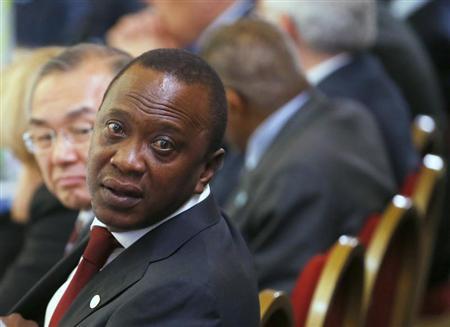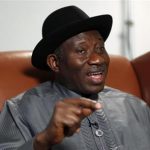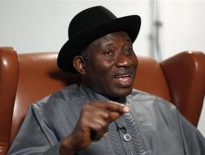(Reuters) – Kenya’s new President Uhuru Kenyatta faces an early test of his reform plans to cut spending and create new jobs, with lawmakers seeking huge pay hikes for themselves.

Kenyatta, who won a closely-fought March 4 election, has backed a move by a state agency to cut salaries for members of parliament, among the best-paid legislators in the world, whose pay is a source of popular anger.
The lawmakers are to vote as early as this week on a motion to overturn a reduction in their pay decided by the state’s Salaries and Remuneration Commission, arguing that the pay cut was against the law.
Kenyatta, 51, son of the nation’s founding president, spoke of the need for slimmer government in a speech to mark the opening of parliament last month, and of economic reforms meant to deliver on a campaign pledge to achieve double-digit growth.
Officials say the economy will grow 6 percent in 2013, up from 4.6 percent the previous year.
A lawmakers’ salary increase could also trigger wage pressure from representatives in the country’s newly-demarcated counties, as well as teachers, police, and doctors.
Kenyatta’s Jubilee coalition, which controls parliament, has promised to deliver free maternity care, laptops to primary school children, better roads and a million new jobs a year, in a country where the unemployment rate stands at 40 percent.
Moses Kuria, a strategist for the coalition, said Kenyatta was urging his coalition to tone down members’ pay demands.
“These are not small promises, they are quite substantial, and Kenyatta knows that by allowing higher pay for MPs there could be a spiraling effect among other public servants, who will demand more pay and this could destabilize his agenda,” said Kuria.
The president wants to cut a public sector wage bill that is now 50 percent of annual tax revenue. The International Monetary Fund puts the global benchmark at about 35 percent.
The commission set the lawmakers’ pay at 532,000 shillings ($6,300) per month to try to trim the public wage bill after MPs’ numbers rose to 350 from 222 previously following the creation of new constituencies before the March elections.
Ignoring Kenyatta’s repeated pleas to be frugal, the MPs want to be paid 851,000 shillings – similar to what their predecessors earned during the last parliament – as well as higher perks to pay for their cars and other allowances.
That would guarantee them more than 130 times the legal minimum wage of 6,498 shillings.
Many Kenyans view members of parliament as symbols of an “it’s our turn to eat” political culture, in which officials view public office as an opportunity for personal gain, which has poisoned Kenyan politics for decades since independence.
“Legislators must work for us first, not demand more pay before they even start their term. They should go to the villages to see real poverty,” said George Wafula, 37, a security guard in a wealthy suburb of the capital.
HANDOUTS TO SUPPORTERS
Lawmakers argue that they need high wages because constituents expect them to provide charitable support. Some also have argued that lawmakers could be vulnerable to bribes in parliamentary votes if their salaries are set too low.
“It is better to pay a reasonable salary so they may not be susceptible to corruption,” said Irungu Kangata, a lawyer and a member of parliament representing Kenyatta’s party.
Kangata however conceded that legislators were bracing for a legal challenge by the salaries commission and civil rights groups if the MPs voted for higher pay for themselves.
Broad public support for Kenyatta in his bid to rein in the lawmakers’ wage demands could strengthen his position as he seeks to unite Kenya behind him after winning a vote that was disputed by his main rival but was affirmed by the courts.
It could also bolster his position abroad as he prepares to fight crimes against humanity charges he faces at the International Criminal Court (ICC) in the Hague. Kenyatta and his deputy William Ruto are accused of masterminding ethnic bloodshed that killed more than 1,200 people after a disputed 2007 election. Both deny the charges.
Opponents accuse Kenyatta of hypocrisy for preaching austerity. He is and one of East Africa’s wealthiest men, with a vast business empire ranging from landholdings to luxury tourist resorts. Ruto, his deputy, has been accused by MPs of spending too much on a tour to four African countries this month, when his office leased a jet it said cost 18.5 million shillings.
Nevertheless, Kenyatta’s position is popular.
“He has justified his position that the higher salaries would impact the wage bill, and this is not populist politics, he is just being pragmatic,” said Adams Oloo, a professor of political science at the University of Nairobi.
In a display of public anger at lawmakers’ wages on May 13, protesters fed animal blood to pigs at parliament, in a jibe at what they called greedy “MPigs”.
“If Kenyatta can’t stop them, we will,” security guard Wafula said, adding there could be “mass protests” if the lawmakers got their pay hike.
(Editing by Pascal Fletcher and Peter Graff)





